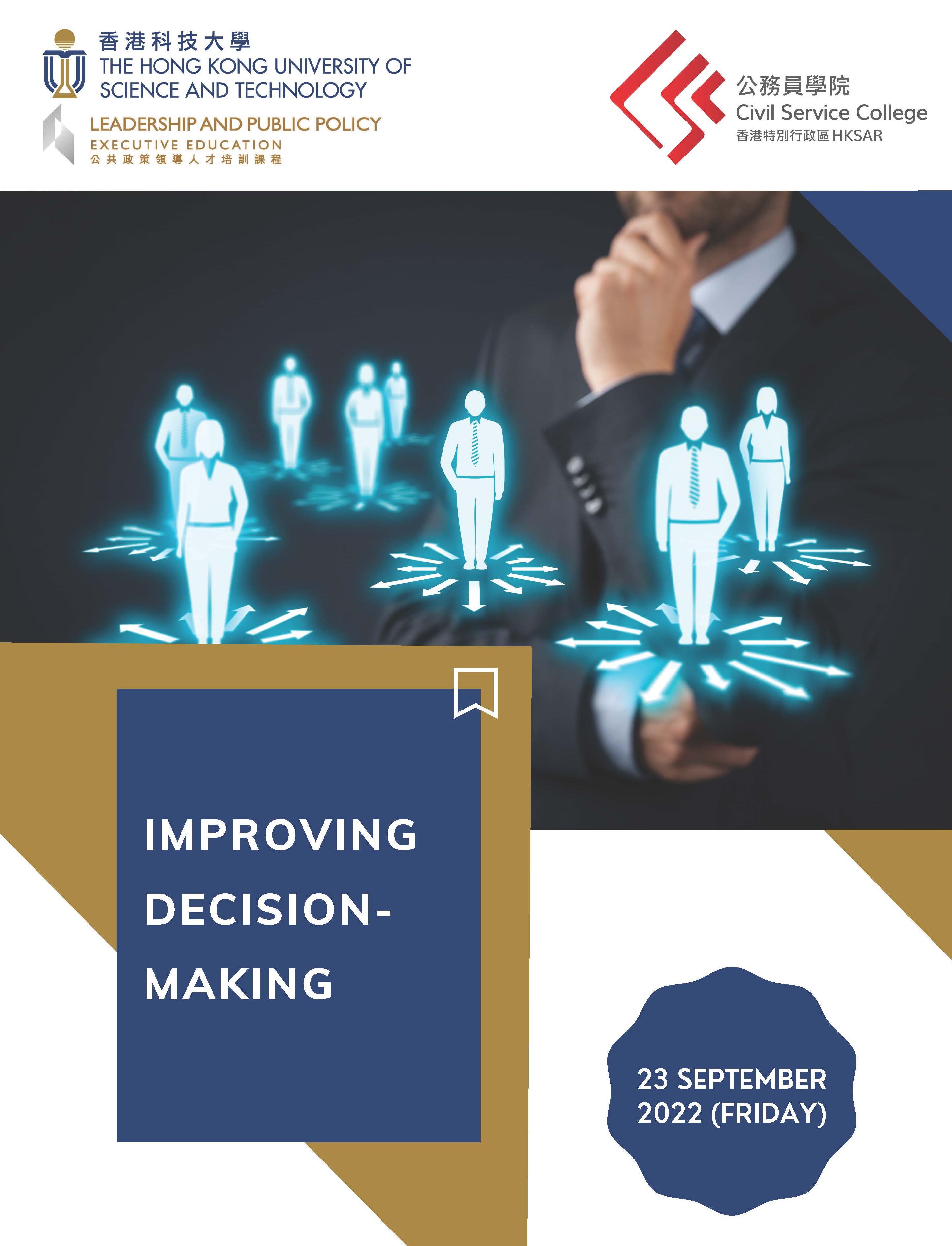Governments around the world are increasingly using behavioral insights to design, enhance and evaluate their policies and programs. Applying these insights require governments to adopt a more realistic view of human behavior and capabilities. At the same time, public officials may themselves be influenced by the same heuristics and biases that they try to address in others. Just as our citizens and customers may make poor decisions due to various behavioral biases and cognitive limitations, so too might government officials also suffer from probability neglect, status quo bias, omission bias, saliency bias, loss aversion, groupthink, overconfidence, and excessive optimism. This masterclass explores how this happens and how these decision biases can be addressed or mitigated. Using a set of policy-relevant case studies, the course will focus on how we may all have too much confidence, an excessive preference for stability and the status quo, and a tendency for conformity and groupthink.
Learning Objectives
- Provide participants with an understanding of behavioral insights to help them identify and analyze decision biases that might hinder sound decision-making in government.
- Explore solutions to counter or accommodate our decision biases.

This is a customised program for Civil Service College.
